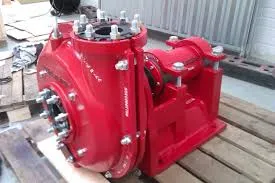Greek
- Afrikaans
- Albanian
- Amharic
- Arabic
- Armenian
- Azerbaijani
- Basque
- Belarusian
- Bengali
- Bosnian
- Bulgarian
- Catalan
- Cebuano
- Corsican
- Croatian
- Czech
- Danish
- Dutch
- English
- Esperanto
- Estonian
- Finnish
- French
- Frisian
- Galician
- Georgian
- German
- Greek
- Gujarati
- Haitian Creole
- hausa
- hawaiian
- Hebrew
- Hindi
- Miao
- Hungarian
- Icelandic
- igbo
- Indonesian
- irish
- Italian
- Japanese
- Javanese
- Kannada
- kazakh
- Khmer
- Rwandese
- Korean
- Kurdish
- Kyrgyz
- Lao
- Latin
- Latvian
- Lithuanian
- Luxembourgish
- Macedonian
- Malgashi
- Malay
- Malayalam
- Maltese
- Maori
- Marathi
- Mongolian
- Myanmar
- Nepali
- Norwegian
- Norwegian
- Occitan
- Pashto
- Persian
- Polish
- Portuguese
- Punjabi
- Romanian
- Russian
- Samoan
- Scottish Gaelic
- Serbian
- Sesotho
- Shona
- Sindhi
- Sinhala
- Slovak
- Slovenian
- Somali
- Spanish
- Sundanese
- Swahili
- Swedish
- Tagalog
- Tajik
- Tamil
- Tatar
- Telugu
- Thai
- Turkish
- Turkmen
- Ukrainian
- Urdu
- Uighur
- Uzbek
- Vietnamese
- Welsh
- Bantu
- Yiddish
- Yoruba
- Zulu
Telephone: +86 13120555503
Email: frank@cypump.com
Νοέ . 08, 2024 08:31 Back to list
Efficient Solutions for Filtering Press Slurry Pump Applications and Performance
Understanding Filter Press Slurry Pumps Function, Applications, and Benefits
Filter press slurry pumps play a crucial role in various industrial processes, particularly in the mining, chemical, food and beverage, and wastewater treatment sectors. These specialized pumps are designed to transport slurry, which consists of a mixture of solids and liquids, under high pressure. In this article, we will explore the function of filter press slurry pumps, their applications, and the benefits they offer to different industries.
Function of Filter Press Slurry Pumps
The primary function of a slurry pump is to move slurry from one location to another for further processing. Slurry is typically thick and may contain abrasive materials, making it challenging to handle. Because of this, filter press slurry pumps are specifically engineered to accommodate the unique properties of slurries, including their density, viscosity, and the presence of solids.
These pumps are equipped with features such as robust impellers and wear-resistant materials, allowing them to handle the abrasive nature of slurries without significant wear. Additionally, they often have the capability to generate high pressure, which is crucial for conveying the slurry through long pipelines or lifting it to elevated positions. The pumps can be centrifugal or positive displacement types, each offering different advantages depending on the application.
Applications of Filter Press Slurry Pumps
Filter press slurry pumps find a wide range of applications across various industries. Some of the most common applications include
1. Mining Industry In mining operations, slurry pumps are used to handle tailings and mineral slurries. They efficiently transport materials such as slurry from the processing plant to settling ponds or filter presses, where valuable minerals can be recovered.
2. Wastewater Treatment In wastewater treatment plants, these pumps are essential for transporting wastewater sludges that result from the treatment processes. They help ensure that sludges are effectively managed and dewatered, minimizing environmental impact.
3. Chemical Processing The chemical industry often deals with slurries that can contain corrosive substances. Filter press slurry pumps are designed to withstand harsh chemical compositions while ensuring safe and reliable transport.
filter press slurry pump

4. Food and Beverage Industry Certain food processing applications also require the use of slurry pumps, particularly for transferring slurries of fruits, vegetables, or other raw materials during production.
5. Construction Industry In construction, slurry pumps are used to handle cement and other materials that are mixed with water. They can efficiently transport these materials for further processing or application.
Benefits of Filter Press Slurry Pumps
The use of filter press slurry pumps comes with several advantages that enhance operational efficiency and productivity
- Durability These pumps are constructed from strong materials to resist wear and tear, which prolongs their service life and reduces maintenance costs.
- Efficiency Filter press slurry pumps are designed to provide high flow rates and pressure, ensuring that operations run smoothly and efficiently. This efficiency is particularly important in large-scale industrial processes where time is of the essence.
- Versatility Their ability to handle a variety of slurries makes them suitable for many different applications across multiple industries.
- Reduced Downtime With reliable operation and lower wear rates, filter press slurry pumps can minimize downtime, keeping production schedules on track.
- Environmental Compliance By effectively managing slurries, these pumps can help companies comply with environmental regulations, thereby reducing the risk of penalties and promoting sustainability.
In conclusion, filter press slurry pumps are invaluable in industries where the handling of slurry is critical. Their robust design, efficiency, and versatility make them essential for ensuring effective operation in various applications, contributing to both productivity and sustainability. As industries continue to evolve, the importance of these pumps will likely grow, driving innovation and improvements in slurry handling processes.
-
High-Performance Air Pumps for Sand & Gravel | Efficient Transport
NewsAug.03,2025
-
ISG Series Vertical Pipeline Pump - Chi Yuan Pumps Co., LTD.|Energy Efficiency, Corrosion Resistance
NewsAug.03,2025
-
ISG Series Pipeline Pump - Chi Yuan Pumps | Energy Efficiency&Compact Design
NewsAug.03,2025
-
ISG Series Vertical Pipeline Pump - Chi Yuan Pumps Co., LTD.|High Efficiency, Low Noise, Durable
NewsAug.02,2025
-
ISG Series Vertical Pipeline Pump - Chi Yuan Pumps | High Efficiency, Low Noise
NewsAug.02,2025
-
ISG Series Vertical Pipeline Pump- Chi Yuan Pumps Co., LTD.|High Efficiency&Compact Design
NewsAug.02,2025










